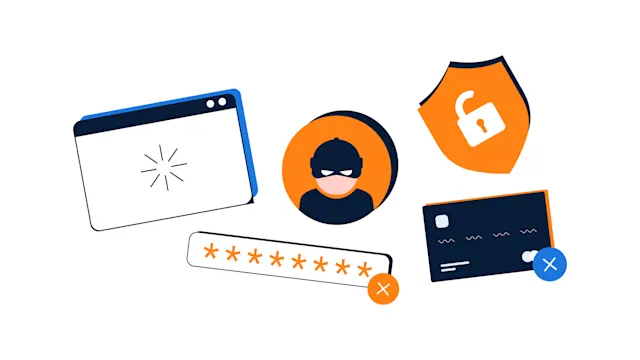
Types of Scams and How to Protect Yourself
Cryptocurrencies have become highly valuable assets thus making them attractive to scammers. It is important for investors to be aware of them and always remain vigilant.
Cryptocurrencies have become highly valuable assets, thus making them attractive to scammers. It is important for investors to be aware of them and always remain vigilant. Some scams within the crypto space can be easy to spot, and others can be more subtle as scammers continue to develop new crafty schemes that catch even the more experienced investors. This article aims to provide a glimpse into some of these scams and how to protect oneself.
Signs of scams
Despite the great number of scams within the space, there are a few pointers investors can employ to notice scams which are mentioned below.
A guaranteed ROI or big payout: The future can never be predicted with certainty; thus, any so-called “investment” that guarantees a return is most likely a scam.
Free money: When a person offers free money through giveaways or airdrops, this can be, at times, a social engineering method to incentivize victims to add more of their own money into the fraudulent project.
Big promises: Projects that make over-ambitious promises with no prospects or explanations as to how they will achieve these objectives are like to be scams.
Types of scams
Generally, there are mainly two categories of scams which are social engineering scams (scammers aim to manipulate people into gaining their assets or confidential information) and cyber security attacks (the scammer's objective is to exploit the weaknesses in the software or hardware of a program). In the crypto space, these will appear as scams that either
a) Attackers try to gain confidential information from users to access their wallets
b) Users transfer their assets to the attacker through a fraudulent investment opportunity or other malicious means.
Below are some of the more common examples of scams that appear in the cryptocurrency space.
Investment opportunity scams
Rug pulls: These are when investors are lured into the project, and then the project developers disappear with the investor's funds; a scam referred to as a rug pull.
ICOs & NFT mints: Given the rising awareness and growth of blockchain technology, new projects are popping up almost every day through Initial Coin Offerings (ICOs) and NFT mints, each with the promise of great returns as compared to other previous successful projects. Many of these will appear as derivate projects or with over-ambitious objectives. With the ease of creating new projects, anonymity, and little to no regulation within the crypto space, scammers can successfully create new illegitimate projects with no repercussions from the law. These ICOs include meme tokens and shit-coins.
Crypto shills: A shill is a person who hypes up a crypto project because of an ulterior motive, often relating to a personal benefit rather than the success of the project. This can be done by YouTubers, crypto influencers, celebrities, or prominent figures of society. Shilling is bad when it has the power to manipulate the price of the asset and if it is an illegitimate cryptocurrency or project.
Pump & Dumps: A type of scam where the price of an asset is artificially inflated by insiders or false information to the public and then dumped within a short period of time by the insiders leaving the unaware investors holding the worthless bags. This often happens with meme-coins but can also be coordinated on the cryptocurrencies of legitimate projects by a group of malicious actors or insiders.
Social engineering scams
Social media giveaways: A lot of scammers will appear generous by offering giveaways or airdrops, which have emerged within the crypto space. This tactic is used by the attacker to lower the victim's guard and gain their trust, which they later use against the victim by luring them into a fraudulent investment or giving up confidential information. Such scams often appear through spam bots or fake accounts, usually disguised as a prominent figure or celebrity but created for the sole purpose of tricking victims.
Phishing: Attackers will misrepresent themselves as a certain entity or business and contact their victims through emails, text messages, or voice calls. These communication vectors will appear legitimate, but they are not, and usually lead victims to fraudulent websites that can be used to trick the victim into giving up confidential information or installing malware into their device. Additionally, phishing messages can lead victims to download fake applications or cryptocurrency services.
Pyramid and Ponzi schemes: This is not a unique scam to the crypto space but nevertheless still popular. Essentially, both type of scams involves victims being convinced to bring in new members so that they can make massive returns, unaware that there is no underlying product of value, but the system relies on new investors to feed those at the top of the chain.
Extortion: This can be done in person or through a cyberattack. As a cyberattack, the attacker will gain confidential information on the victim and use it as a threat or blackmail against the victim into giving up their crypto assets.
Protecting yourself
Doing Your Own Research (DYOR) on a project can help you as an investor to differentiate legitimate projects from scams.
Do not invest money you cannot afford to lose because even legitimate projects can fail, given the cryptocurrency space is still new.
Do not blatantly trust giveaways and promotions, even from influencers.
You do not need to and should never share private keys with anyone.
Avoid clicking on shady links and downloading shady applications.
Use verified and well-regulated sources, service providers, applications, and exchanges such as Coin-Mena, which is regulated by the central bank of Bahrain.
Use extra layers of security such as 2FA, different passwords, and emails.



